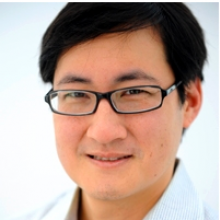

Stanley S. Chang
Stanley Chang is engaged in the study of the curvature and rigidity of high-dimensional manifolds, using such tools that appear in algebraic topology, differential geometry, index theory and C*-algebras. The examination of such properties has been of classical interest, but recent developments have reanimated the subject in both the compact and noncompact contexts. Currently he is co-authoring an advanced textbook on surgery methods and applications which will describe the many topological theorems proved in the 1970s and 1980s.
In the past years he has taught a wide variety of courses at all levels of the mathematics curriculum, including calculus, linear algebra, abstract algebra, real and complex analysis, topology and Galois Theory. More recently he has developed courses in Advanced Number Theory, Functional Analysis and Stochastic Processes.
At Wellesley he served both on the 2015 Commission, the Academic Planning Committee and the Presidential Search Committee in 2016. In these campus bodies he is interested in helping the College maintain high academic standards for all of its students. In his own department he is involved in the effort to build curricular offerings and to prepare students for graduate studies. Along with Professor Oscar Fernandez, he co-created the Wellesley Emerging Scholars Initiative in the hopes to increase the participating by underrepresented minorities in the mathematical sciences.
He is an amateur fencer and has competed in some regional tournaments. He plays both piano and harpsichord and has performed in some ensembles on campus. His love of mathematics extends to a love of language, and he spends some of each week reading Classical works written in Greek and Latin. He is a member of the Metropolitan Chorale, a Boston-area choir that performs choral works three times a year.